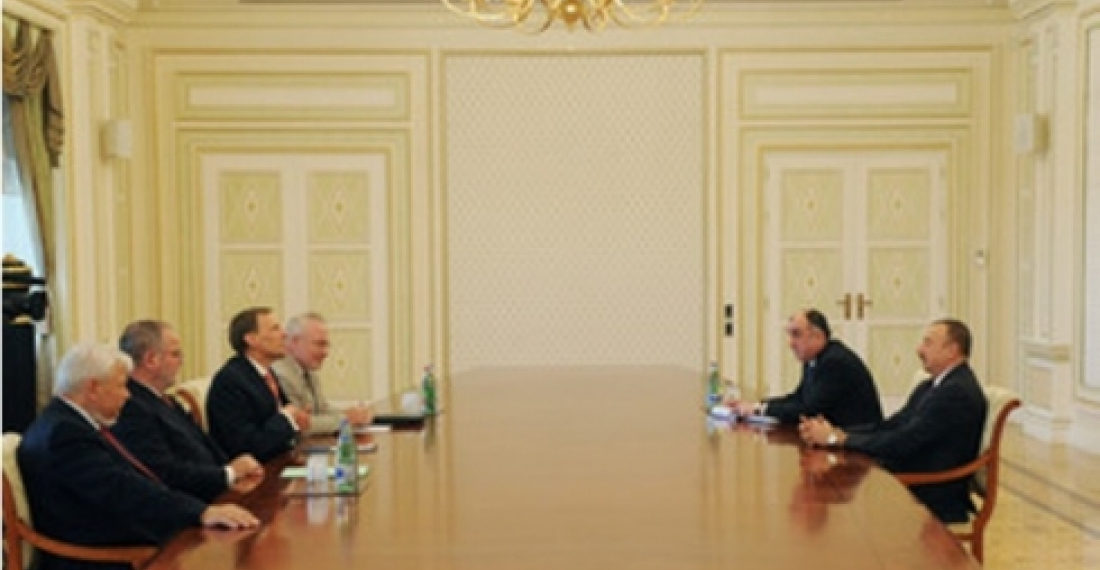Diplomats representing the three co-Chair countries of the OSCE Minsk Group, France, Russia and the United States, will today cross the line of contact seperating Armenian and Azerbaijani Forces around the Nagorno-Karabakh conflict zone at the end of their visit to Baku for meetings with the Azerbaijani leadership. The diplomats will then proceed to Stepanakert where they will meet officials of the self declared Nagorno-Karabakh Republic. Later they will travel to Yerevan for meetings with the Armenian leadership.
In Baku, Igor Popov (Russia), Robert Bradtke (USA), Jacques Faure (France), as well as the special representative of the OSCE chairman-in-office, Andrzej Kaspzyk, met with Azerbaijani President Ilham Aliev. According to the President's press service "the sides exchanged views on the current state and prospects for negotiations to resolve the Armenian-Azerbaijani conflict over Nagorno-Karabakh."
Commonspace.eu political editor said in a comment: "Physically crossing the line of contact seperating Armenian and Azerbaijani forces around the Nagorno-Karabakh conflict zone is proving easier for the Minsk Group diplomats than achieving a breakthrough in the negotiations themselves. They hope that their presence on the ground will help calm down the situation on the line of contact which remains tense.There are however few signs of progress in the negotiations and no major developments are expected immediately after this visit, as both Armenia and Azerbaijan remain firmly entrenched in their positions - both on the ground, and diplomatically."
source: commonspace.eu
photo: President Aliev with the Minsk Group diplomats in Baku on 10 July (picture courtesy of the Press Service of the president of Azerbaijan)







